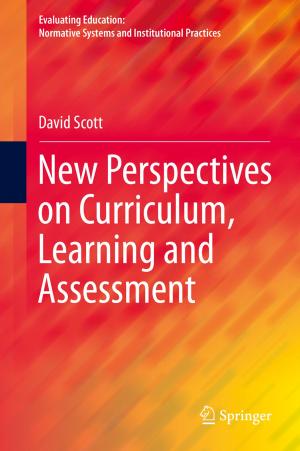International Perspectives on Engineering Education
Engineering Education and Practice in Context, Volume 1
Nonfiction, Science & Nature, Technology, Industrial Design, Religion & Spirituality, Philosophy, Reference| Author: | ISBN: | 9783319161693 | |
| Publisher: | Springer International Publishing | Publication: | May 25, 2015 |
| Imprint: | Springer | Language: | English |
| Author: | |
| ISBN: | 9783319161693 |
| Publisher: | Springer International Publishing |
| Publication: | May 25, 2015 |
| Imprint: | Springer |
| Language: | English |
This inclusive cross-cultural study rethinks the nexus between engineering education and context. In so doing the book offers a reflection on contextual boundaries with an overall boundary crossing ambition and juxtaposes important cases of critical participation within engineering education with sophisticated scholarly reflection on both opportunities and discontents.
Whether and in what way engineering education is or ought to be contextualized or de-contextualized is an object of heated debate among engineering educators. The uniqueness of this study is that this debate is given comprehensive coverage – presenting both instrumentally inclined as well as radical positions on transforming engineering education.
In contextualizing engineering education, this book offers diverse commentary from a range of disciplinary, meta- and interdisciplinary perspectives on how cultural, professional, institutional and educational systems contexts shape histories, structural dynamics, ideologies and challenges as well as new pathways in engineering education. Topics addressed include examining engineering education in countries ranging from India to America, to racial and gender equity in engineering education and incorporating social awareness into the area.
Using context as “bridge” this book confronts engineering education head on. Contending engineering ideologies and corresponding views on context are juxtaposed with contending discourses of reform. The uniqueness of the book is that it brings together scholars from the humanities, the social sciences and engineering from Europe – both East and West – with the United States, China, Brazil, India and Australia.
This inclusive cross-cultural study rethinks the nexus between engineering education and context. In so doing the book offers a reflection on contextual boundaries with an overall boundary crossing ambition and juxtaposes important cases of critical participation within engineering education with sophisticated scholarly reflection on both opportunities and discontents.
Whether and in what way engineering education is or ought to be contextualized or de-contextualized is an object of heated debate among engineering educators. The uniqueness of this study is that this debate is given comprehensive coverage – presenting both instrumentally inclined as well as radical positions on transforming engineering education.
In contextualizing engineering education, this book offers diverse commentary from a range of disciplinary, meta- and interdisciplinary perspectives on how cultural, professional, institutional and educational systems contexts shape histories, structural dynamics, ideologies and challenges as well as new pathways in engineering education. Topics addressed include examining engineering education in countries ranging from India to America, to racial and gender equity in engineering education and incorporating social awareness into the area.
Using context as “bridge” this book confronts engineering education head on. Contending engineering ideologies and corresponding views on context are juxtaposed with contending discourses of reform. The uniqueness of the book is that it brings together scholars from the humanities, the social sciences and engineering from Europe – both East and West – with the United States, China, Brazil, India and Australia.















